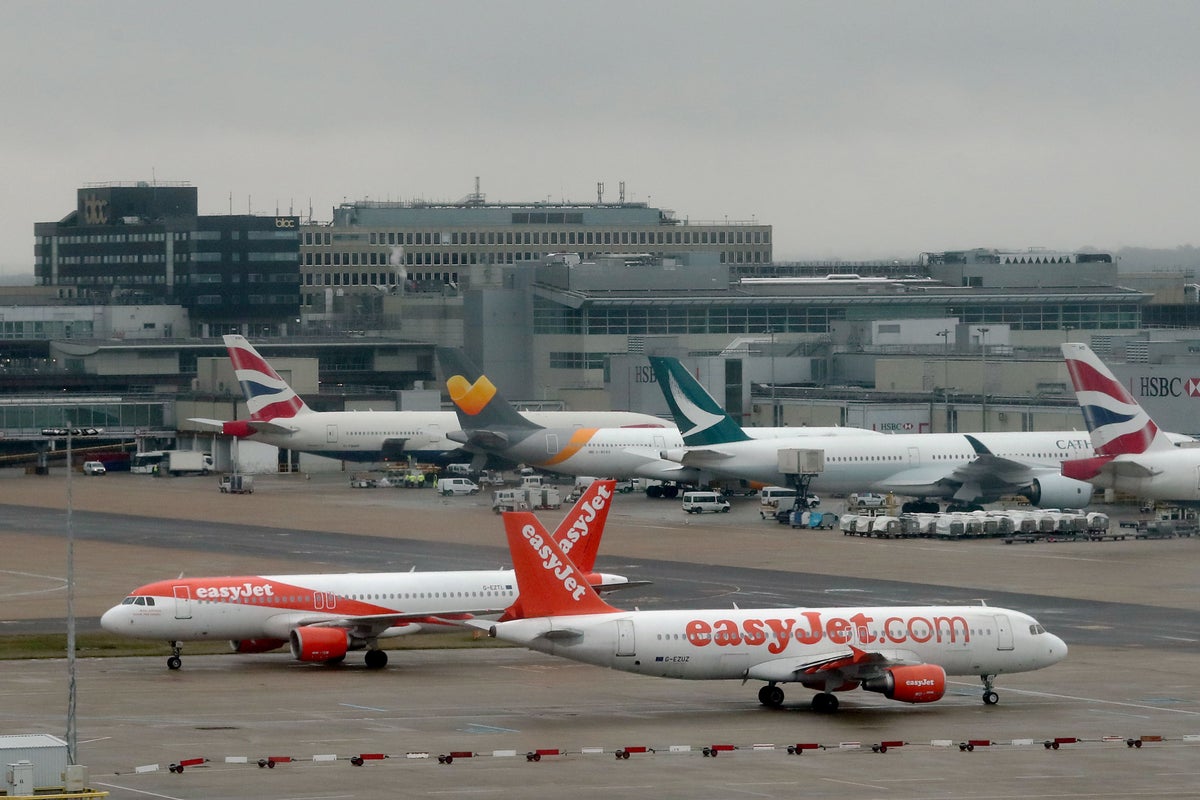
Flights have been cancelled, delayed or diverted because of a lack of staff in air traffic control at Gatwick airport.
Dozens of arrivals and departures were affected on Thursday evening, with passengers advised to contact their airline.
One person complained on social media that a flight had been diverted to Bournemouth airport, while another had to take off from London Stansted.
Gatwick airport said 22 flights have been cancelled.
It is unacceptable that some Gatwick passengers have been hit by further air traffic control problems so soon after the chaos a few weeks ago— Rory Boland, Which?
National Air Traffic Services (Nats) said: “Air traffic control restrictions have been put in place this afternoon due to a short notice staff absence affecting our air traffic control team at Gatwick Airport.
“We are working closely with the airport to ensure we can handle flights with as little disruption as possible and we apologise very sincerely to people who have been inconvenienced [as a result of unavoidable diversions].
“We are working closely with Gatwick Airport Ltd to build resilience in the airport’s control tower to ensure disruption is kept to a minimum.
“New air traffic controllers have been recruited since last summer, increasing our presence by 17%, and others are due to start after completing their training, in line with the agreed plan when Nats took over the contract last October.
“London Gatwick’s senior management understands that we are working hard to keep the operation moving. Airlines operating at London Gatwick were aware of the situation when Nats was appointed but that does not dilute the apology we offer sincerely to them and their passengers who have been inconvenienced by recent disruption.”
The Sussex airport apologised, adding in a statement: “Nats are a world-class provider of air traffic services and London Gatwick’s senior management recognises how hard the airport’s air traffic controllers are working to keep the operation moving.
“We are working closely with Nats to build resilience in the airport’s control tower to ensure disruption is kept to a minimum.”
Laura Neary, 29, was due to catch a Ryanair flight to Dublin at 5:30pm, but it diverted to London Stansted, which she had to travel to by coach.
Ms Neary, who was travelling on her own, said some of the passengers received text messages saying they would need to take a coach to reach Stansted, in Essex, while others were told they could still board the flight from Gatwick.
The sales worker, who is from the Irish capital, told the PA news agency: “I don’t even know if I can get back to Dublin tonight.”
It comes after the Nats control system for the entire UK was hit by a technical glitch on Bank Holiday Monday, August 28, causing widespread disruption.
More than a quarter of flights to and from UK airports were cancelled that day, affecting around 250,000 people.
Airlines are paying millions of pounds to Nats each and every year and should not have to see their passengers suffer avoidable delays due to UK ATC staff shortages— Michael O'Leary, Ryanair boss
Cancellations continued for two more days as planes and crews were out of position.
Ryanair boss Michael O’Leary told the BBC: “It is unacceptable that more flights and hundreds of passengers are suffering delays to/from Gatwick Airport due to Nats CEO Martin Rolfe’s blatant failure to adequately staff UK ATC.
“Airlines are paying millions of pounds to Nats each and every year and should not have to see their passengers suffer avoidable delays due to UK ATC staff shortages.”
Rory Boland, of consumer group Which?, said: “It is unacceptable that some Gatwick passengers have been hit by further air traffic control problems so soon after the chaos a few weeks ago.
“This is not an issue caused by airlines, but they must meet their legal obligations to look after passengers and provide them with support during delays and help with refunds and rerouting – including with other carriers if necessary.
“To help end this cycle of miserable passenger experiences, the Prime Minister must play his part and prioritise legislation to give the CAA stronger enforcement powers in the King’s Speech later this year.”







